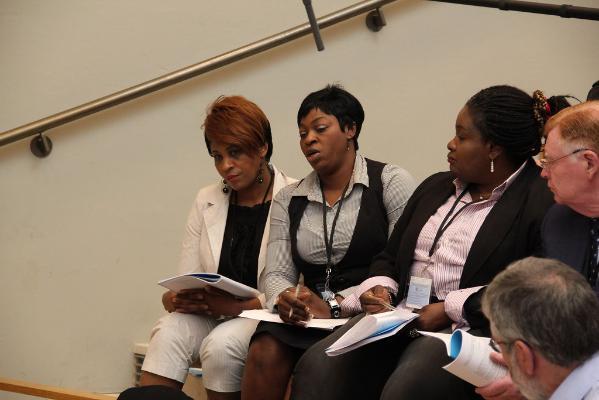In This Section
- CIRTL Homepage
- Meet our Team
- Resources
- Short Guides
- Short Guide 1: Starting Well
- Short Guide 2: Scaffolding Learning
- Short Guide 3: Icebreakers
- Short Guide 5: Discussions for Online Learning
- Short Guide 4: Visualising Thinking
- Short Guide 6: Universal Design for Learning
- Short Guide 7: Group Work
- Short Guide 8: Reimagining Practicals
- Short Guide 9: Assessment in the Age of AI
- Sustainable Development Goals Toolkit
- Group Work
- Connected Curriculum
- Civic Engagement Toolkit
- Learning Outcomes
- DigiEd Reading List
- Ethical Use of GenAI Toolkit
- Short Guides
- Professional Development
- Events
Bringing Lived Experience to Life

Connecting your curriculum with societal challenges is an opportunity to expose students to real world scenarios and contexts. You can start small by integrating community voices and bringing lived experience to life for your students.
How can you sensitize your students to the critical issues taking place in the real world but relevant to their programme of study? Perhaps you don’t have much time or flexibility to do anything substantial right now. Here are some suggestions for light touch but impactful ways to expose students to different pockets of knowledge that exist outside the University:
- Integrate different voices throughout the academic year moving away from a solely academic model.
- Highlight examples of some of the many varied and multi layered situations that exist in the real world.
- Equip students with the problem-solving skills that will be required of them as graduates.
Integrating community voices
Here is an example of one lecturer’s particular approach to integrating community voices. Her approach demonstrates good practice, connecting the curriculum with societal issues and cultivating core values of respecting and valuing the importance of community knowledge and expertise.
Each year, in partnership with NASC (the Migrants and Refugee Rights Centre), Caroline Shore (Lecturer, Applied Social Studies) invites a person with first-hand experience of Ireland’s Direct Provision (DP) system to contribute to the Masters of Social Work programme. The individual is proposed by NASC and remunerated by UCC. The guest lecturer accounts their personal experience of coming to Ireland, living within the DP system, accessing supports, and navigating the different systems and procedures.
Students gain a nuanced understanding of the complexities faced by people living in DP and awaiting refugee status. Hearing from the person first-hand rather than reading or listening to an account allows students to become more reflective practitioners and be empathetic in their future professions.
The concept of inviting an individual to provide real-life context to students is not unheard of. What is different about this example is that through partnering with NASC, the interaction is professionalised. NASC work within their organisation to source the appropriate person, placing value on that person’s time and expertise. Oftentimes, certain sectors of society are drawn upon without a clear, reciprocal benefit for them which can lead to experiences that are transactional in nature. The approach taken by Caroline embodies the principles of Civic Engagement and helps to develop relationships with communities that are built upon trust and respect.
For more on this story contact:
This Practice Insight is published by @UCC_CIRTL and @UCC_Civic as part of the CE Toolkit for embedding civic and community engagement in the curriculum. Discover more about How to Connect Societal Challenges here.
Follow UCC School of Applied Social Studies on Twitter @UCCAppSoc.
